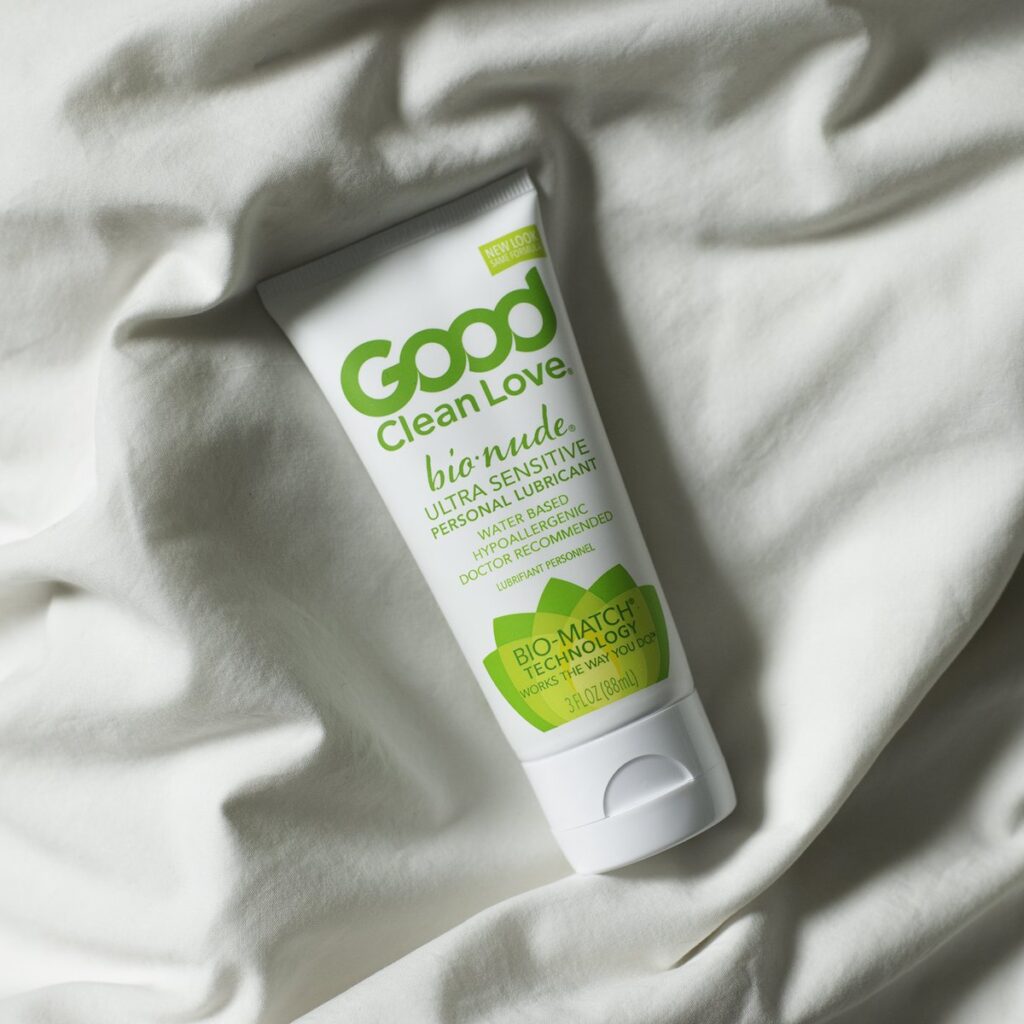Why You Have Painful Sex and How to Improve it
Painful sex is discomfort that is felt during or after intercourse and can be something you experience occasionally or persistently. According to the American College of Obstetricians and Gynecologists, painful intercourse, which is medically referred to as dyspareunia, affects as many as 75% of women at some point in their lifetime. Painful sex can have both mental and physical triggers or a combination of both. If you have experienced discomfort due to a physical trigger, it can cause anxiety that the pain will occur again, leading to further psychological triggers. There are many reasons you could be experiencing painful intercourse, and it is always a good idea to consult with a physician when you have chronic pain.
Top Physical and Emotional Causes for Painful Sex
Physical Causes
- Vaginal dryness
- Menopause
- Injury or Trauma
- Vaginismus
- Inflammation or infection
Emotional Causes
- Anxiety or depression
- History of sexual abuse
- Stress
- Lack of pleasure or satisfaction
Vaginal Dryness
Vaginal dryness can make having sex feel impossible or, at the very least, incredibly painful. Who shut the hose off? The natural lubrication that was once flowing has now disappeared. It can occur in women of all ages, but it becomes a greater issue as women enter menopause. Unfortunately, 50% of women find it embarrassing to talk about and do not seek help. They feel like vaginal dryness isn’t an issue that can be resolved but rather something new they must live with.

Solutions
1) Discussing your hormone levels with a doctor can be the golden ticket to reopening the floodgates of pleasure.
2) Many women have also found great success with Light Therapy devices like The MyElle Vaginal Rejuvenation Wand, which helps to stimulate the glands responsible for natural lubrication.
3) Find a non-toxic lubricant to use during intercourse. Trust me, your partner will not mind and will just be happy they are getting lucky. I Like Good Clean Love’s water-based lubricant.

Menopause
Menopause is one of the leading causes of painful intercourse after the age of 45. In fact, 50-70% of women experience painful sex during and post-menopause. Unfortunately, even though so many women experience discomfort, the topic has remained taboo to discuss. It absolutely shouldn’t be and trust me; your doctor likely hears about it every day. As a woman enters menopause, she experiences a decline in estrogen, which leads to the tissues of the vulva and the lining of the vagina becoming thinner, drier, and less elastic. This change can also cause inflammation which increases sensitivity, and not the good kind.
Solutions:
- The main reason for the majority of symptoms associated with menopause is a decline in estrogen. Your doctor can help you balance your hormone levels naturally or through hormone replacement therapy (HRT).
- Utilizing light therapy devices like the MyElle Vaginal Rejuvenation Wand can help reduce inflammation and pain while increasing natural lubrication.
- Diet can play a huge role in managing hormone levels. Finding a dietitian that specializes in working with women during and after menopause can be a great and natural way to find relief.
Injury or Trauma
Painful sex can also be due to scar tissue build-up or inflammation caused from pelvic surgery, female circumcision, childbirth, episiotomy, or IUD complications, to name a few. Many women feel that this is just the way it is after an injury occurs. However, that does not have to be the case. It is important to discuss this with your doctor or find a doctor experienced in this type of pain.

Solutions:
- Discuss this pain with a doctor to ensure that there are no other contributing factors.
- Ask your doctor if seeing a physical therapist who specializes in women’s intimate health could improve your pain.
- Ask your doctor if using a light therapy device could help improve scar tissue and reduce inflammation.
- Take it slow. If you’ve experience an injury or trauma, this can also lead to increased anxiety about having sex and cause your body to tense up, making the pain worse.

Vaginismus
Vaginismus is when the vaginal canal feels too tight, and spasms occur in the pelvic floor muscles. It can make it painful, difficult, or impossible to have sex, insert a tampon or even have a gynecological exam.
Solutions:
- Physical Therapy is a great place to start. A therapist who specializes in women’s health will suggest exercises that can help the muscles relax.
- Vaginal dilators are often recommended to help slowly loosen the canal.
- Relaxation techniques and sex therapy can help decrease the anxiety and physiological factors that typically affect women with this condition.
Inflammation and Infections
Vaginal yeast infections, urinary tract infections, or sexually transmitted infections (STIs) can cause inflammation and other uncomfortable symptoms like itching and burning. Some women can be more prone to experience regular yeast infections, which can lead to chronic discomfort. Soaps and feminine products can also contribute to increased infection and inflammation.

Solutions:
- Always consult a doctor if you are experiencing pain, itching, or burning, as an infection may be the culprit.
- Avoid feminine products filled with chemicals, scented tampons, and pads.
- Sleep naked or in loose-fitting clothes to avoid an overly moist environment for your vagina while you sleep.
- Rinse off with clean water after a bath. A scented bubble bath and bath bombs can throw off your pH.
- Try a blue light device that can help sterilize bacteria.

Anxiety and Depression
People who suffer from chronic depression and anxiety tend to have less interest in sex. This lack of interest or pleasure can make having sex painful and negative. This can be very challenging if you feel pressure to satisfy your partner.
Solutions:
- Set up an action plan to address your anxiety and depression with a therapist.
- Speak with a sex and relationship mentor who can help recommend different methods to ease the anxiety and depression contributing to the pain.
History of sexual abuse
Experiencing sexual abuse can have long-lasting effects on a woman’s body and sex life. The desire to make love to your partner may be there, but you could have physical pain due to scar tissue or a wide range of emotional triggers that cause your body and mind to tense up.

Solutions:
- Find a therapist who specializes in sexual abuse. Even if it has been years since you experienced the abuse. There is no timeline on healing, and it will likely be something you need continued support with.
- Find a sex and relationship mentorwho can help you discover your voice. Your voice was taken from you, and now you may not know what you desire sexually or feel comfortable asking for it.
- Be gentle with yourself. If you put pressure on yourself to have sex when you aren’t feeling comfortable, you will likely experience painful sex both physically and emotionally.

Stress
Stress is a big reason why couples may not be having sex, but it can also cause painful sex. Sex is meant to be pleasureful and feel good. If you are stressed, your body is likely tense, and that tension affects your whole body. It can cause you to have less natural lubrication and even make penetration very difficult and painful.
Solutions:
- Stay active. Working out is known to reduce stress and help alleviate built-up tension.
- Take your time. Sex doesn’t have to be a rush to the finish line.
- Focus on foreplay. Spending a little more time getting into the right space may have your body feeling more relaxed and open to the idea of sex.
Lack of pleasure and satisfaction
If sex isn’t usually an enjoyable experience for you, then your vagina likely isn’t too keen on the idea. When you anticipate pleasure, your vagina produces natural lubrication, and your muscles relax, making sex enjoyable. Conversely, if you are regularly dissatisfied with the experience, your vagina is probably tenser and less lubricated, which can also make sex painful.

Solutions:
- Talk with a sex and relationship mentor to help you find out why you aren’t getting what you want in the bedroom and how to ask for it.
- Experiment with self-touch. You may discover more of what feels good and what doesn’t.
- Communicate with your partner when something doesn’t feel right.
Painful sex can have many different causes, and some women may have more than one or two contributing factors. Discovering what is causing you to have painful sex may take extra support. A sex and relationship mentor can guide you in this discovery. Understanding why the pain is happening is the first step to overcoming it and enjoying sex.
It’s never too late to create a life of passion!
Schedule a Complimentary Passionate Possibilities Session
During this 60 minute call, we’ll dive in and discuss your vision, goals, and desires. We’ll talk about what’s holding you back from having what you want. Along the way, we’ll discover if we’re a good match to work together. If we are, at the end of the call, we’ll explore the options in working together and how I can help you have more passion, connection, and intimacy.
This session is valued at $349 but is my complimentary gift to you if you’re ready to learn how to express your needs and desires, get them fulfilled, and learn the skills of communication and connection.
This transformative experience will leave you inspired and open to new possibilities!
Rain Montana, Intimacy & Relationship Mentor, www.PleasureSexAndHealing.com